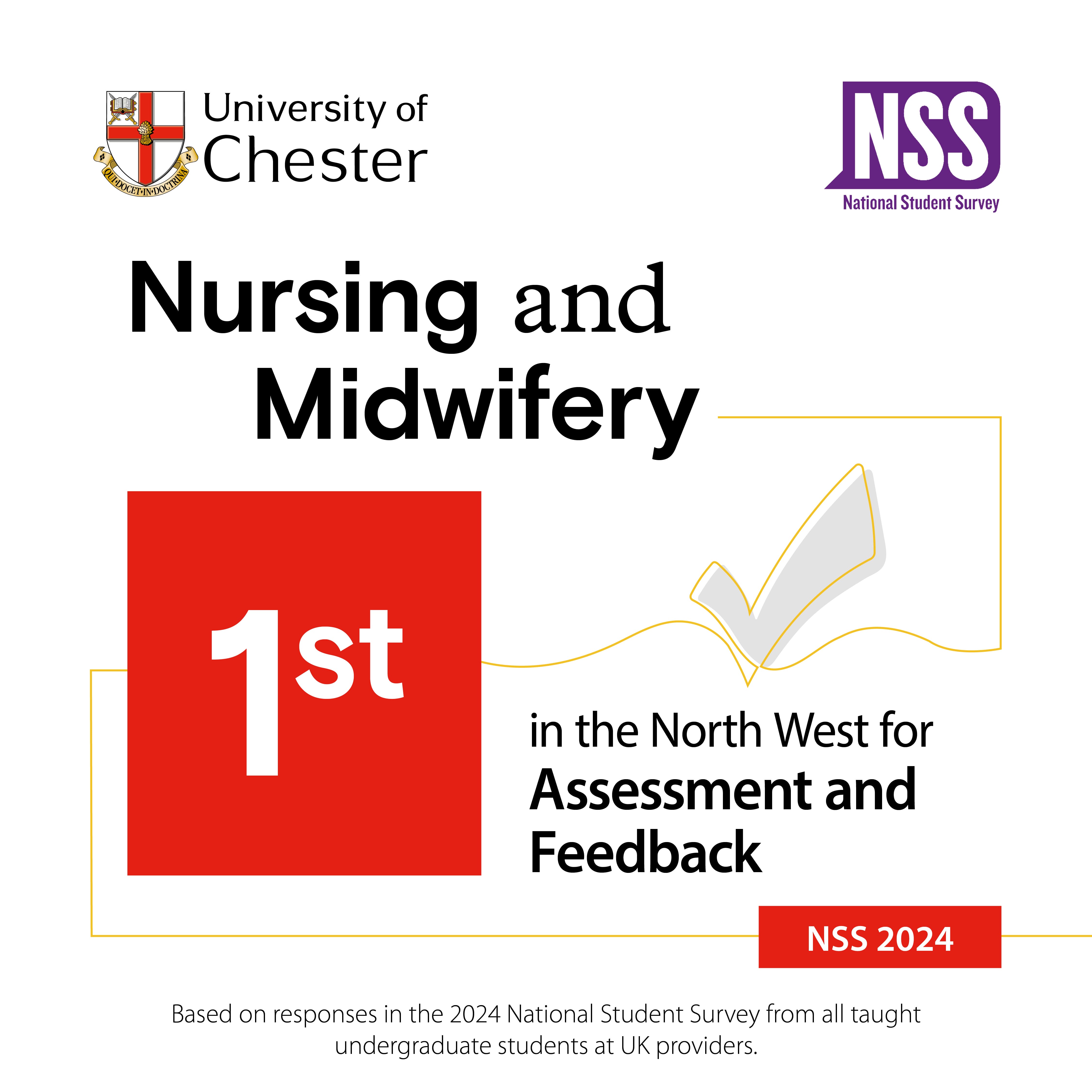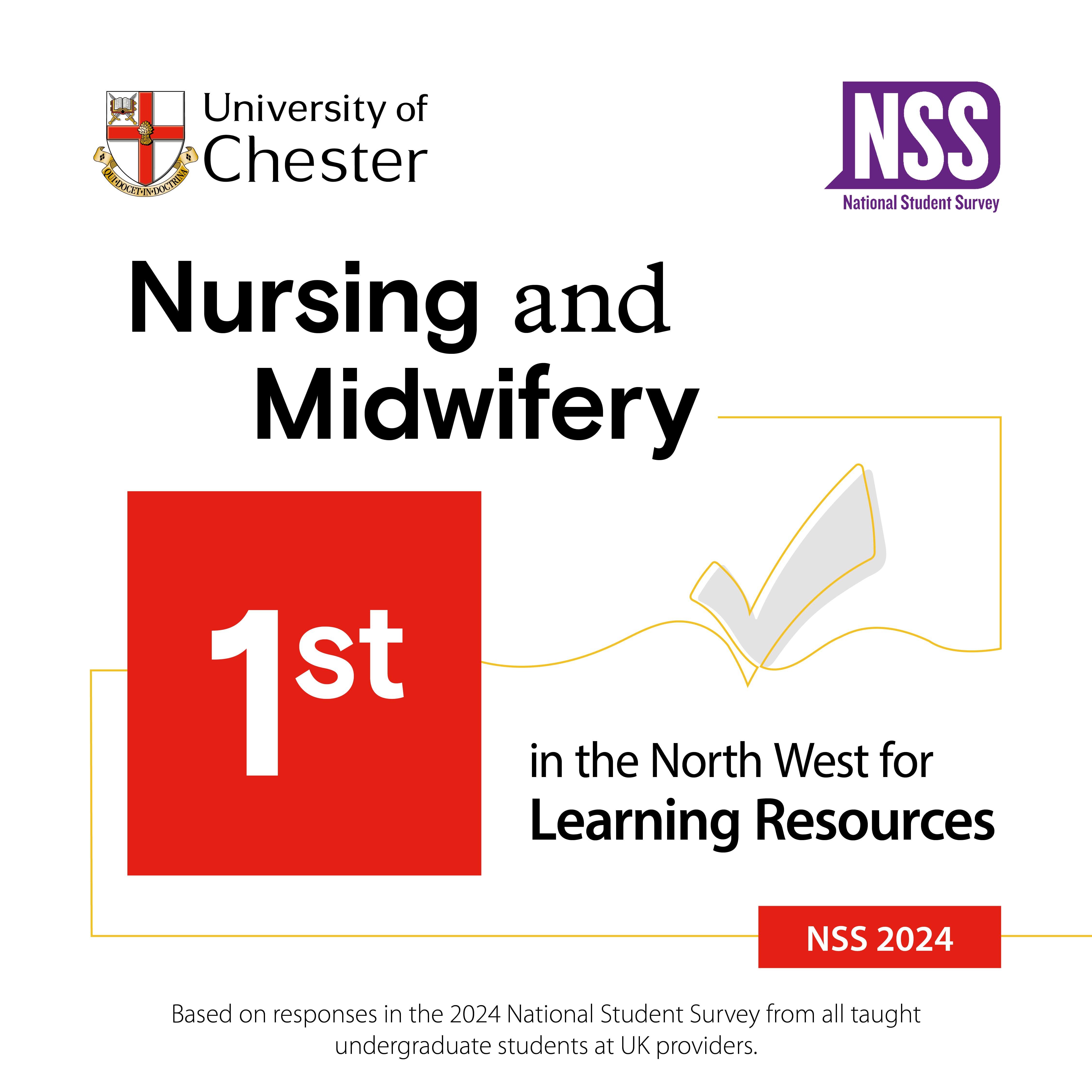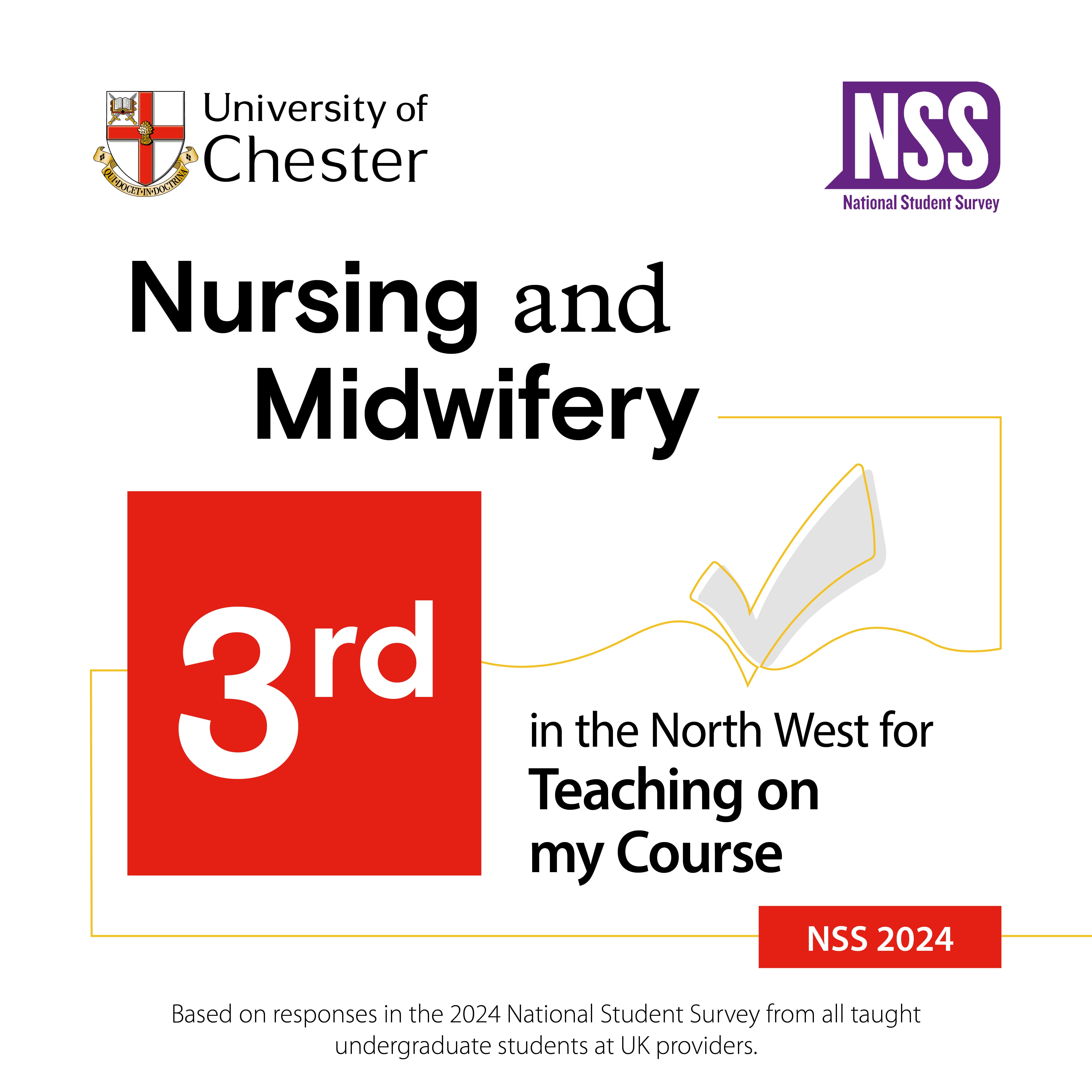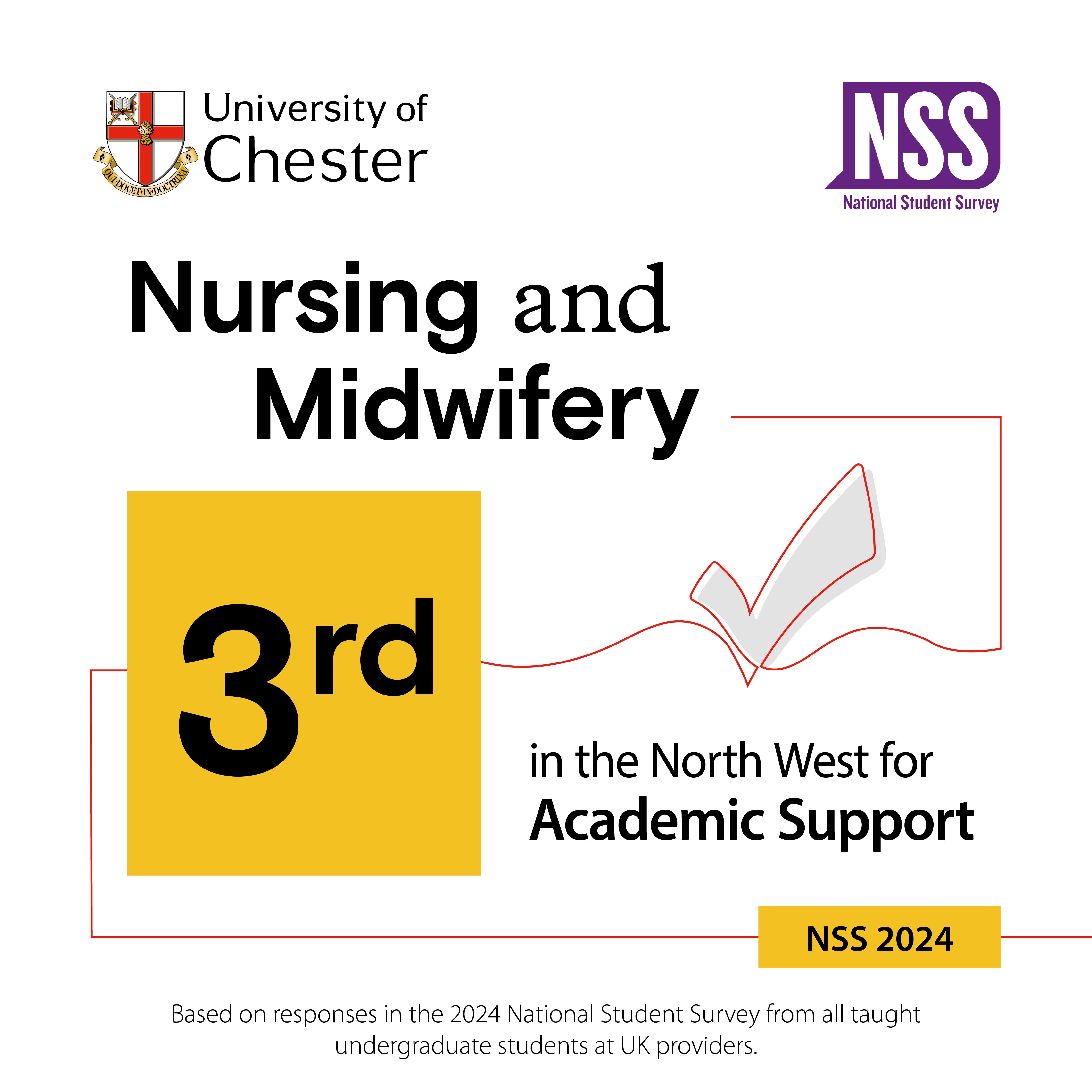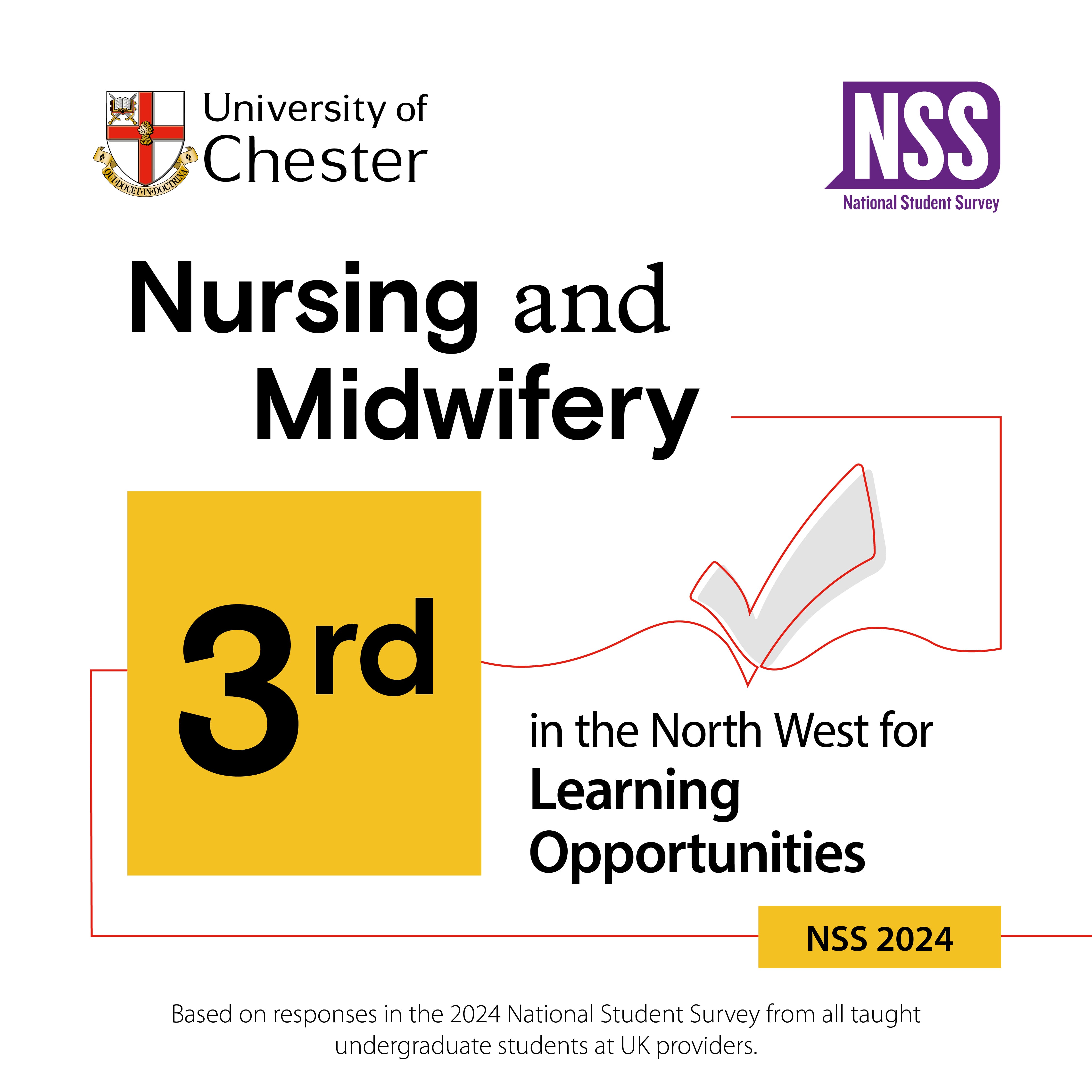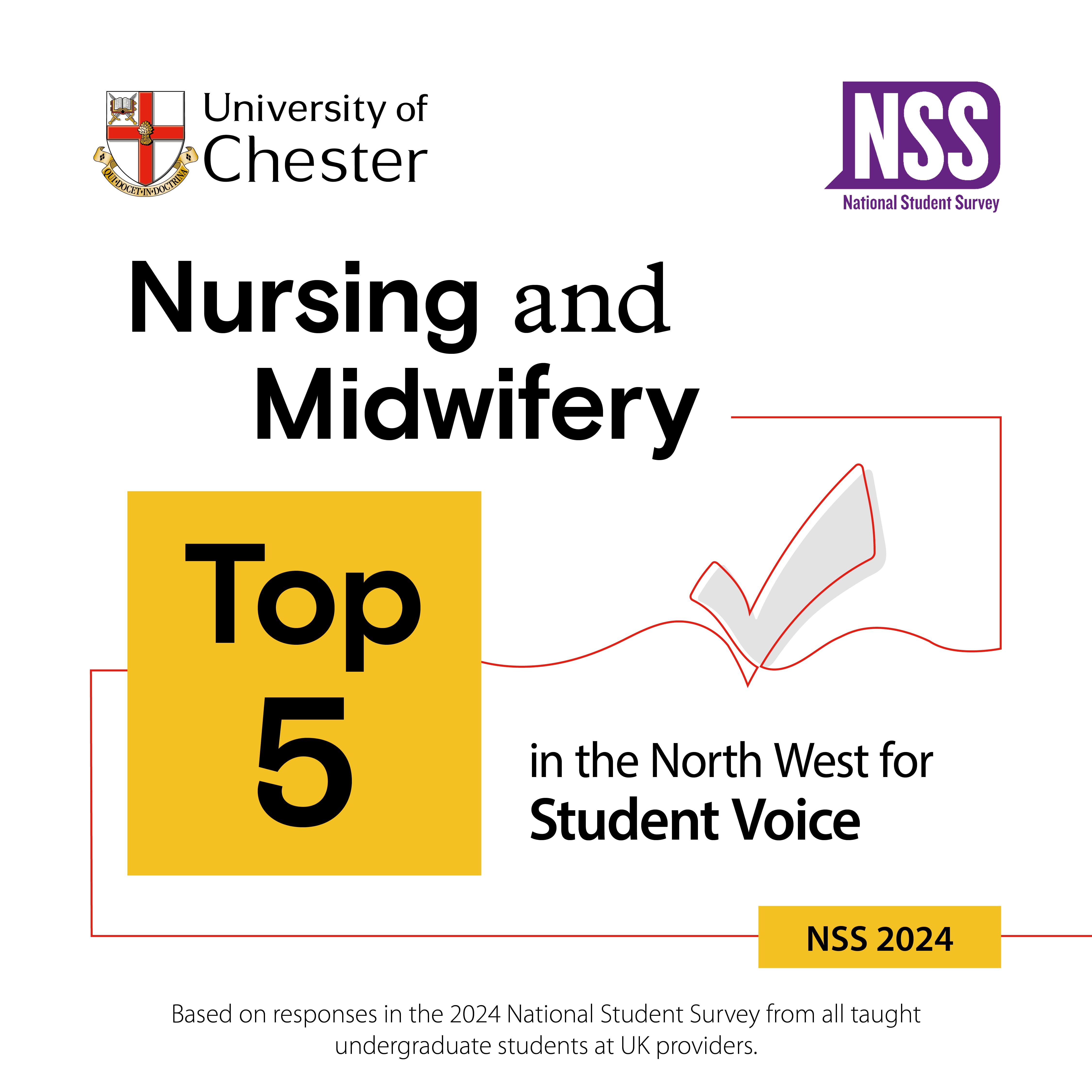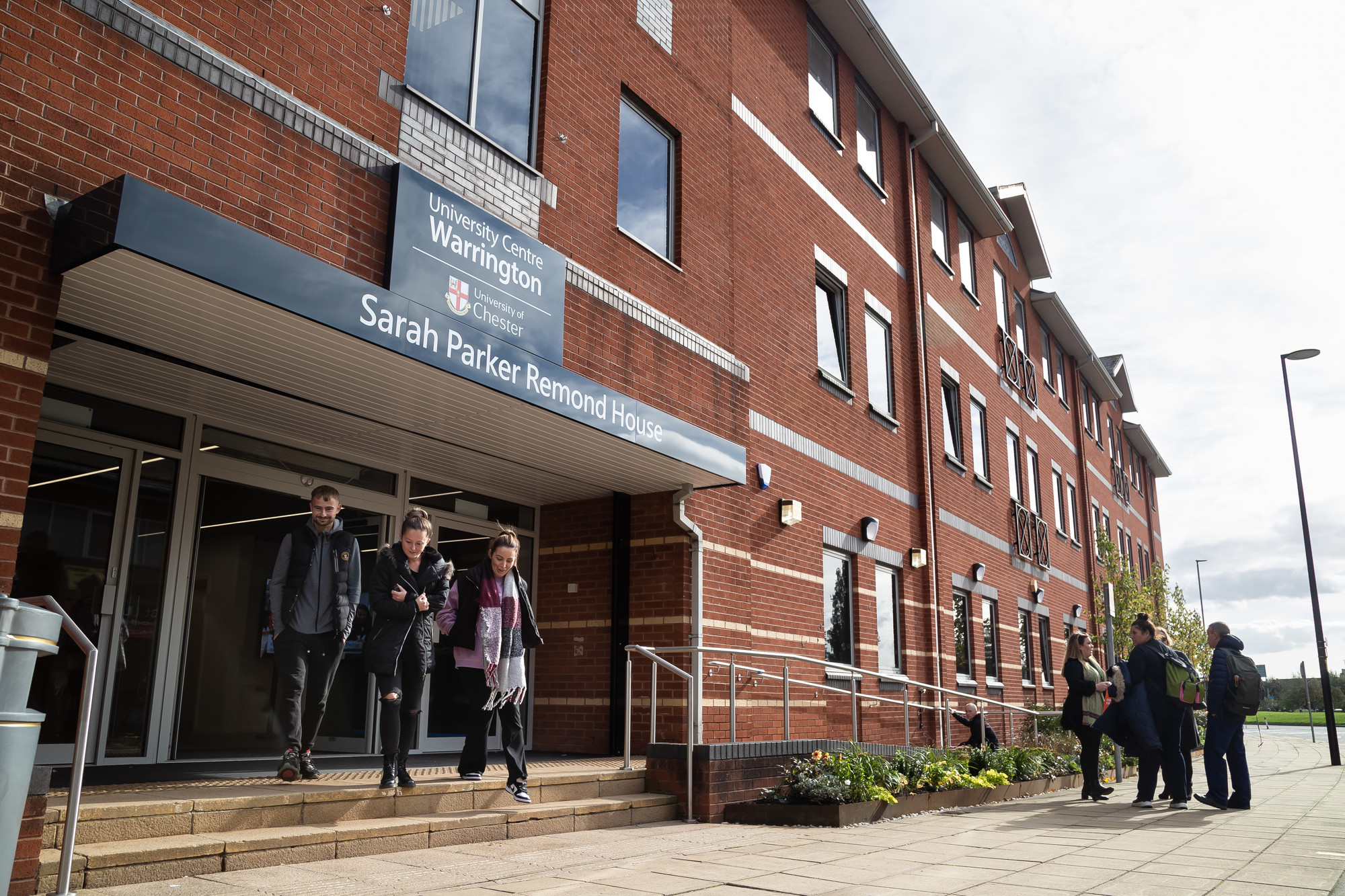|
Extra Information / General Entry Requirements |
Applicants must possess:
AND ALSO possess ONE of the following (or equivalent):
Applicants are invited to attend an interview; this will seek to assess the candidates' communication skills, motivation, aptitude and knowledge of the nurse associate role.
|
|
Safeguarding / suitability |
All successful candidates who receive an offer of a place for this course and choose the University of Chester as their Firm choice will be required to undergo checks with regards to their suitability to practice. A couple of months prior to admission to this course, the University will contact you to request that you complete a self-declaration form detailing any relevant convictions or other information that you believe may have an impact upon your ability to undertake work with children or vulnerable adults. You will also receive instructions on how to complete an online application for a Disclosure and Barring Service (DBS) check through the University as a registered body. There will be a charge for this. Please note that the University does not accept previous DBS checks from other registered bodies or the update service. For details about the cost of the DBS and for further information, please visit our DBS webpages.
|



